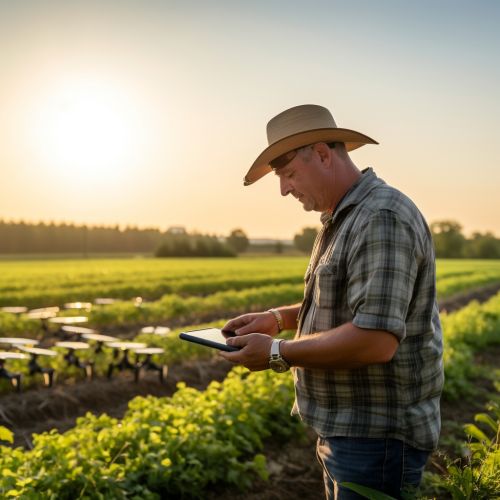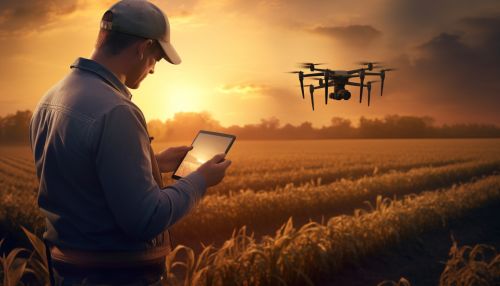The Role of Big Data in Precision Farming
Introduction
Precision farming, also known as precision agriculture, is a modern farming management concept that utilizes big data to maximize the efficiency of crops and soil. The integration of big data in precision farming has revolutionized the agricultural sector by providing detailed insights into farming operations, enabling farmers to make informed decisions and optimize their production.


The Concept of Big Data
Big Data refers to extremely large data sets that can be analyzed computically to reveal patterns, trends, and associations, especially relating to human behavior and interactions. In the context of precision farming, big data can include information about weather patterns, soil conditions, crop yields, and farming techniques.
Role of Big Data in Precision Farming
The role of big data in precision farming is multifaceted and vital. It aids in decision making, improves productivity, and promotes sustainability in farming practices. The following sections delve into the specific roles of big data in precision farming.
Decision Making
Big data provides farmers with actionable insights that facilitate informed decision making. Data collected from various sources such as soil sensors, weather stations, and satellite imagery can be analyzed to provide detailed information about the farm's condition. This information can guide farmers on when to plant, irrigate, fertilize, and harvest crops, thereby maximizing productivity and minimizing waste.
Productivity Improvement
Through the analysis of big data, farmers can identify patterns and trends that can lead to productivity improvements. For example, data on crop yields can reveal which crops perform best under specific conditions. This information can be used to optimize crop selection and rotation strategies, leading to increased yields and profitability.
Sustainability Promotion
Big data can also play a significant role in promoting sustainability in farming practices. By providing detailed information on soil conditions and crop health, big data can help farmers implement practices that preserve the health of the soil and reduce the use of harmful pesticides and fertilizers.
Challenges in the Use of Big Data in Precision Farming
Despite the numerous benefits, the use of big data in precision farming also presents several challenges. These include data management issues, privacy concerns, and the need for specialized skills and equipment.
Data Management
Managing large volumes of data can be a daunting task. Farmers need to ensure that the data collected is accurate, relevant, and stored securely. Additionally, the data needs to be analyzed and interpreted correctly to provide useful insights.
Privacy Concerns
With the collection of large amounts of data, privacy concerns arise. Farmers need to ensure that the data collected is used responsibly and that the privacy of individuals is respected.
Need for Specialized Skills and Equipment
The use of big data in precision farming requires specialized skills and equipment. Farmers need to be trained in data analysis and the use of modern farming equipment such as drones and sensors.
Conclusion
The integration of big data in precision farming has the potential to revolutionize the agricultural sector. It provides farmers with detailed insights into their farming operations, enabling them to make informed decisions and optimize their production. However, the use of big data also presents several challenges that need to be addressed to fully realize its potential.
